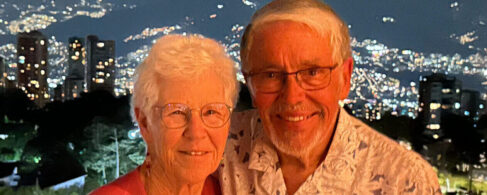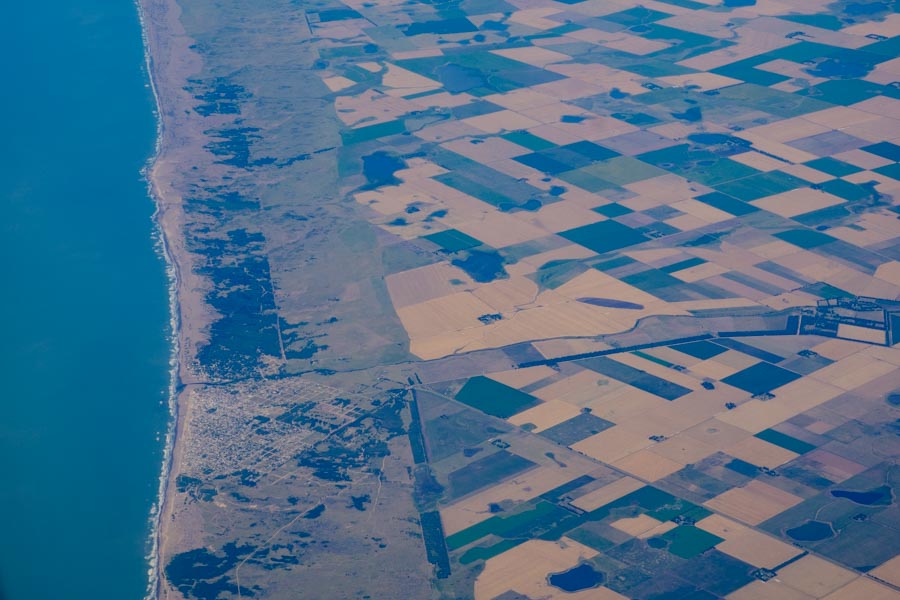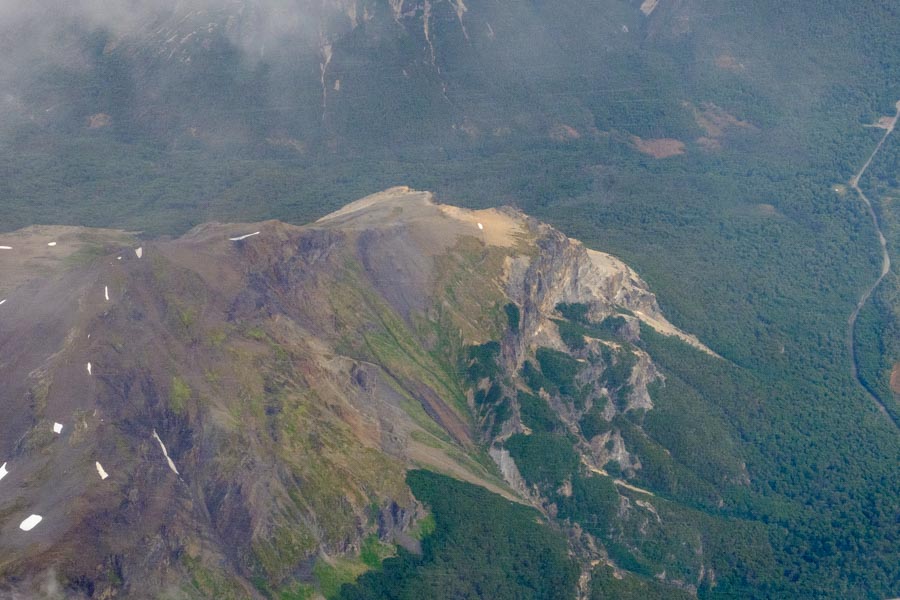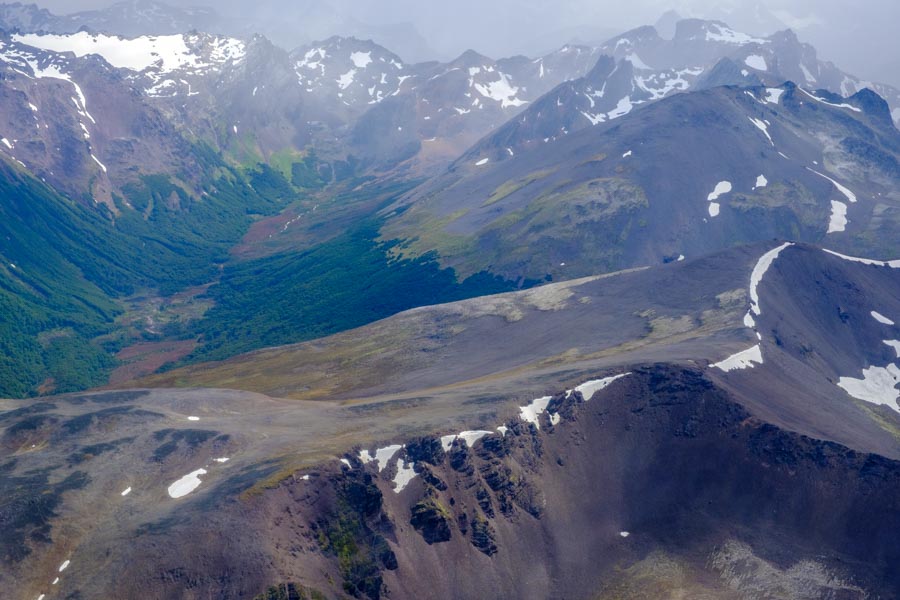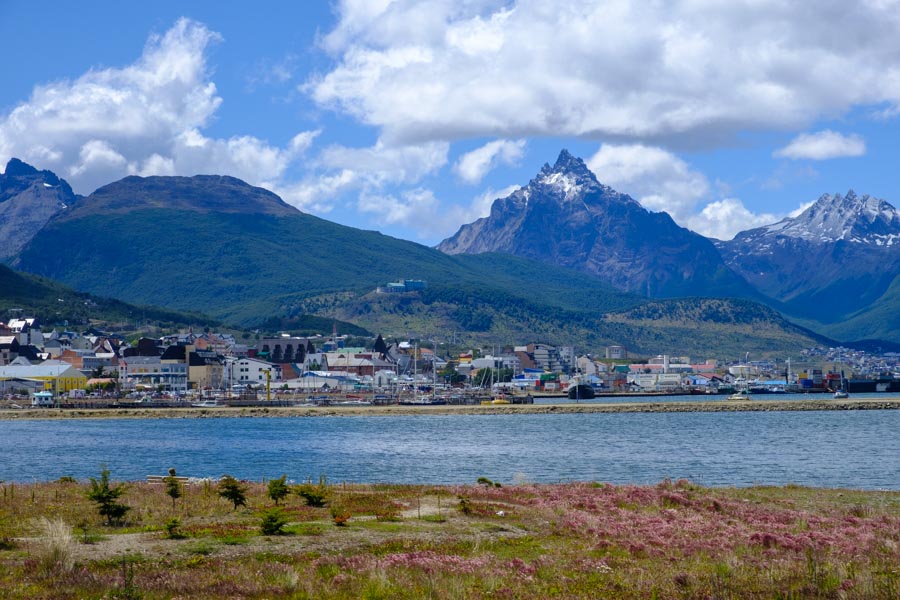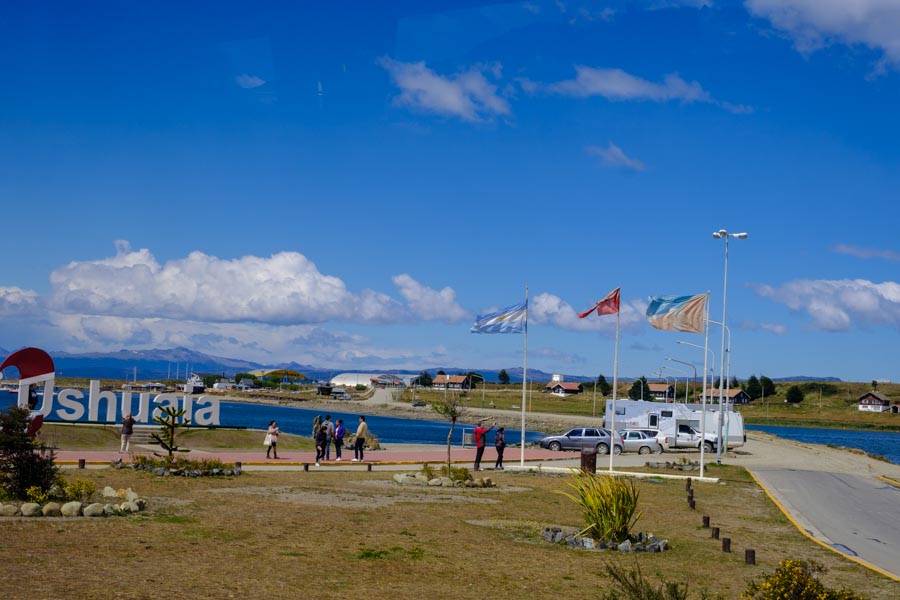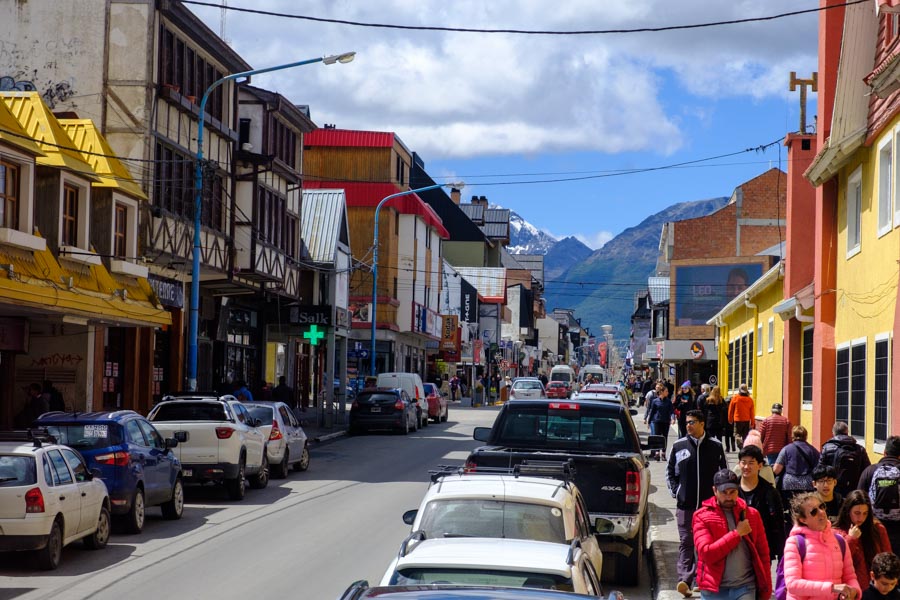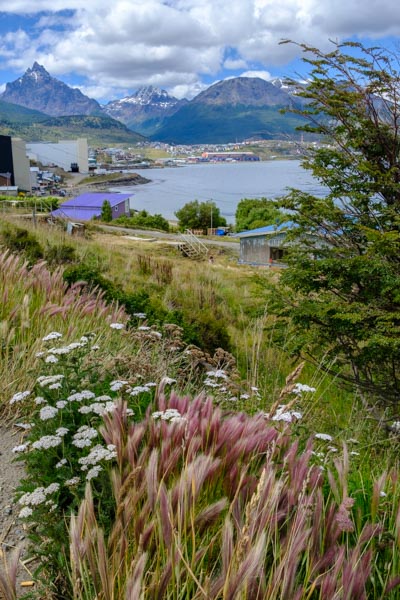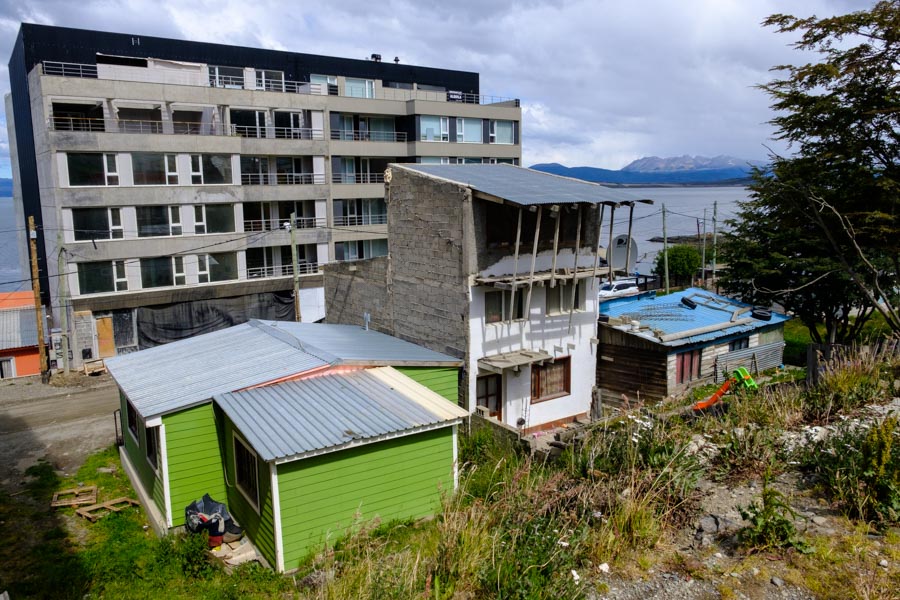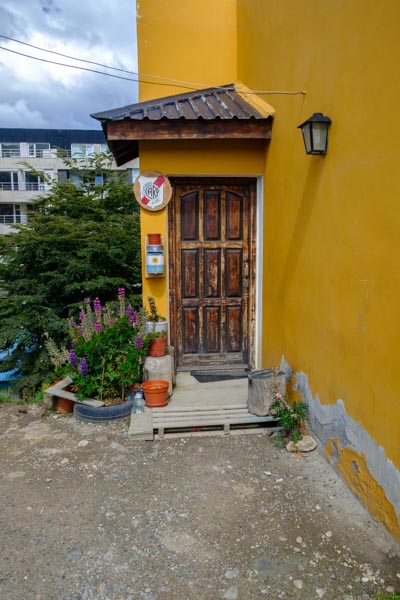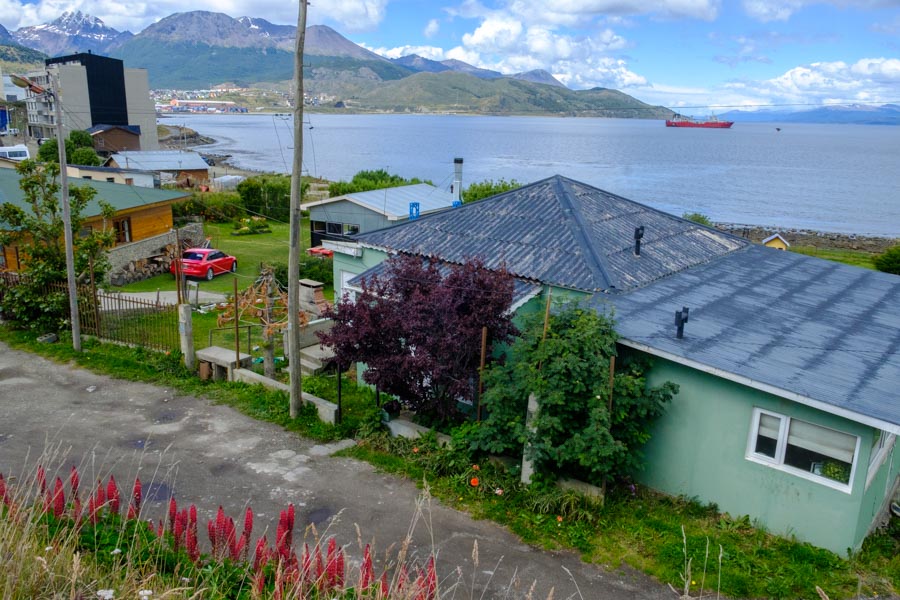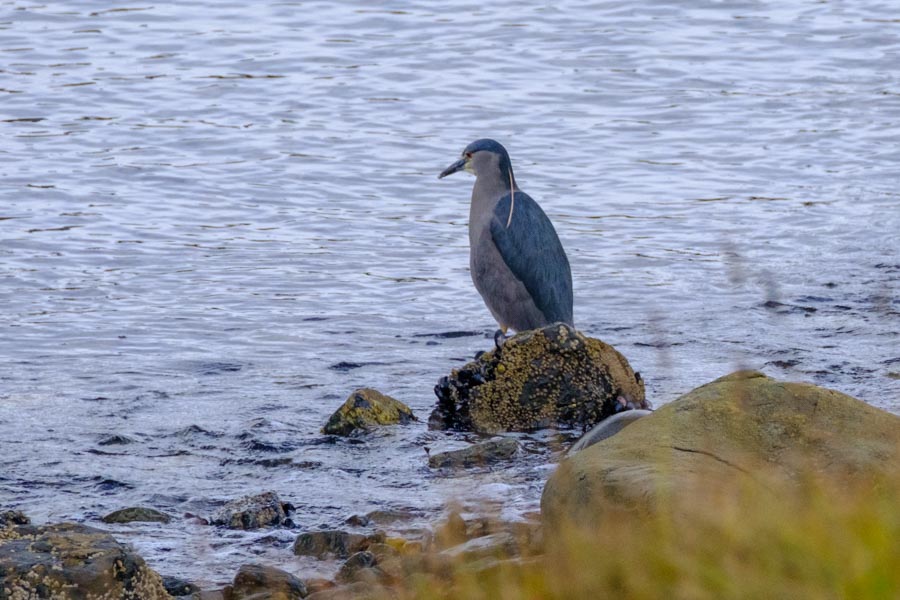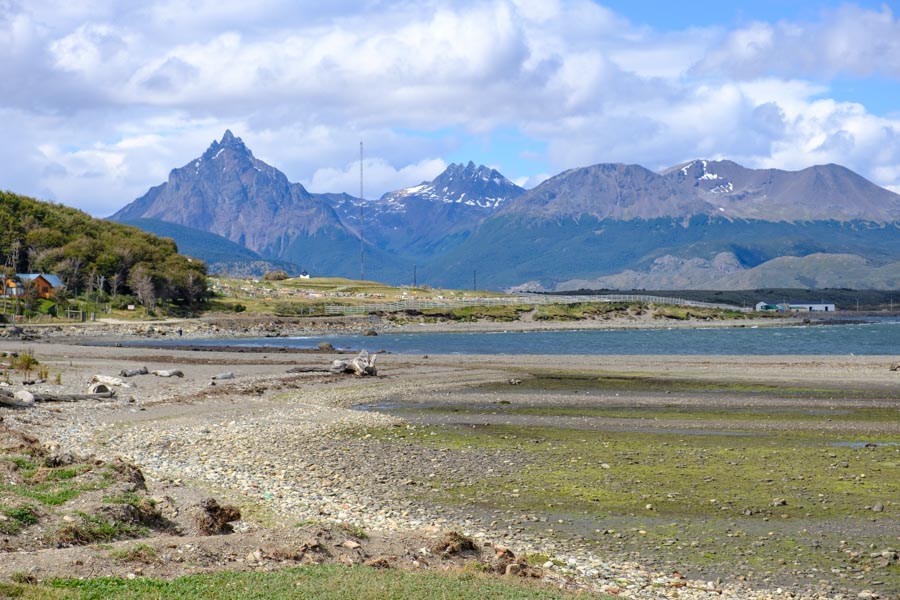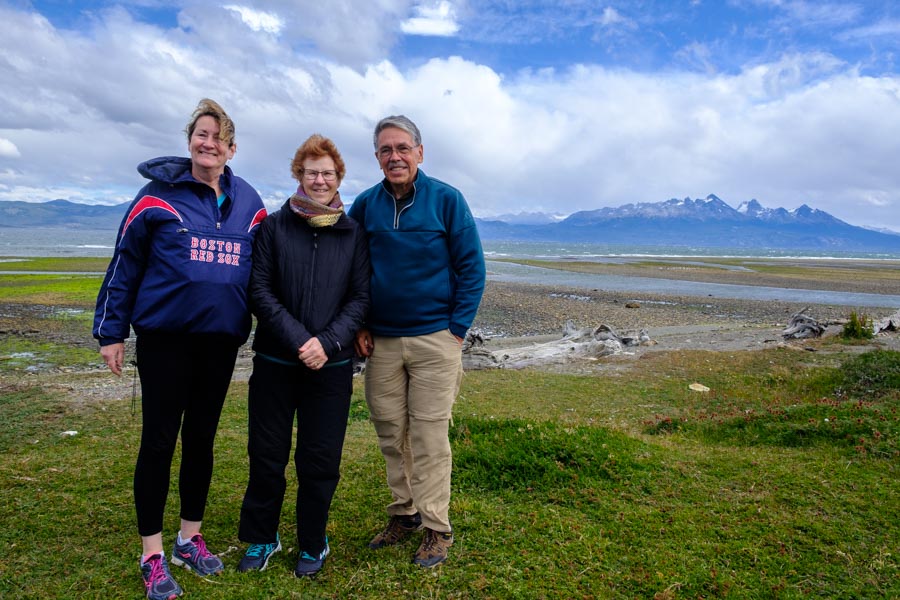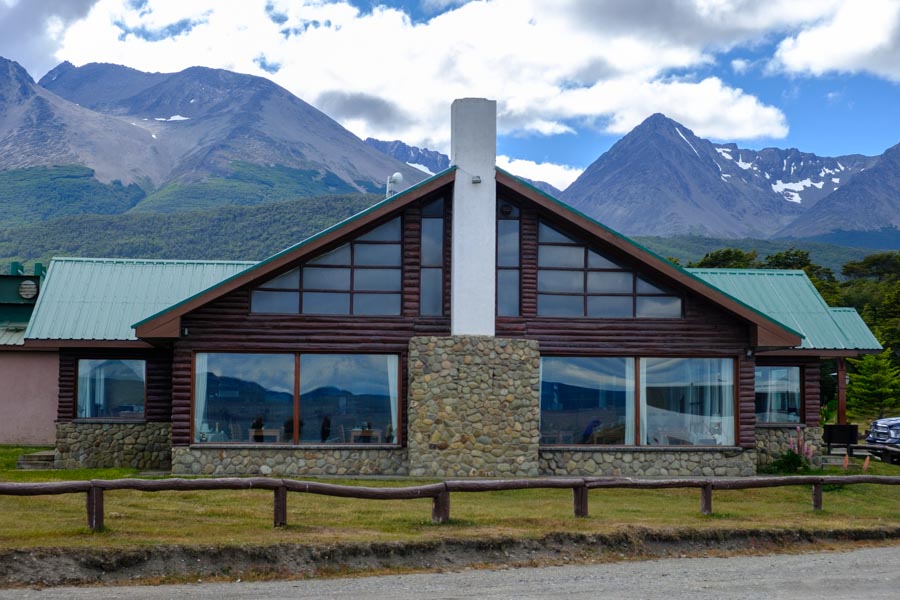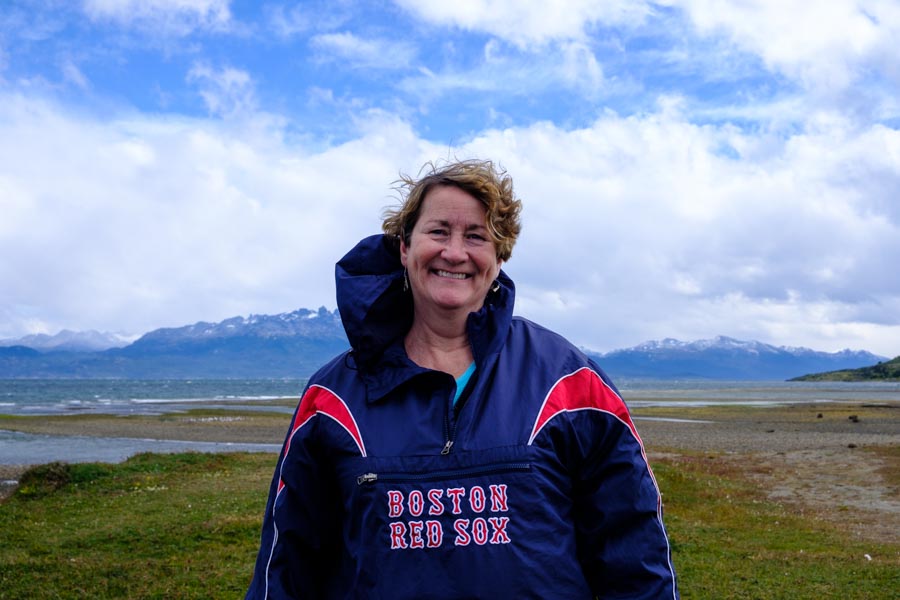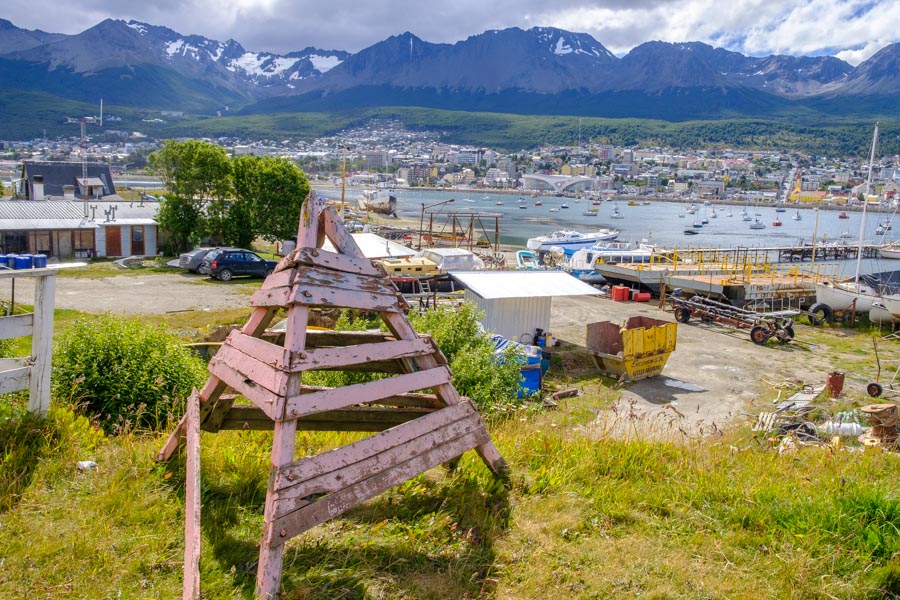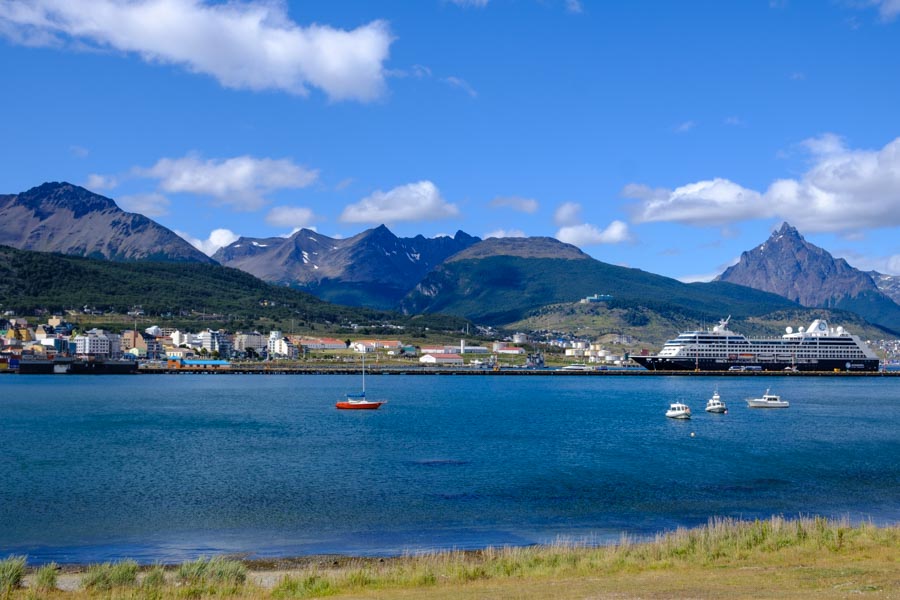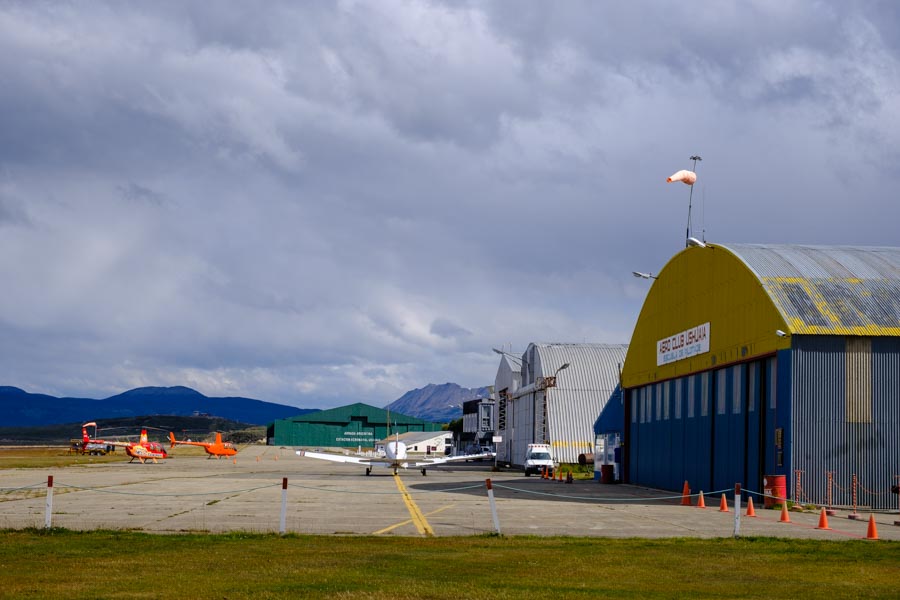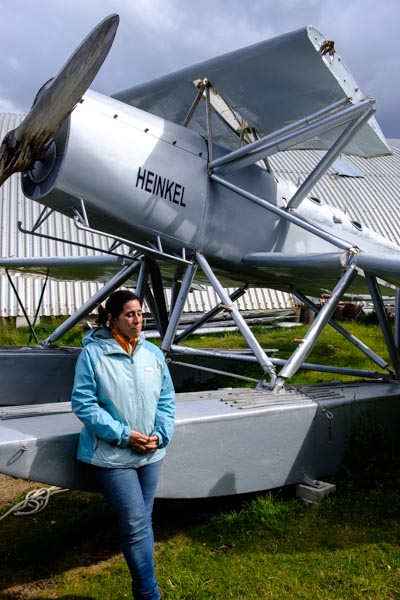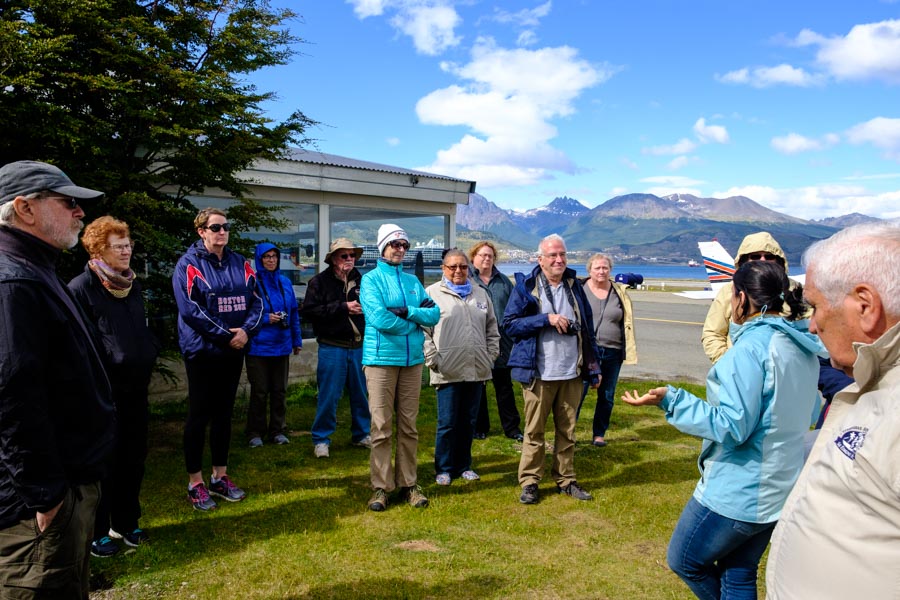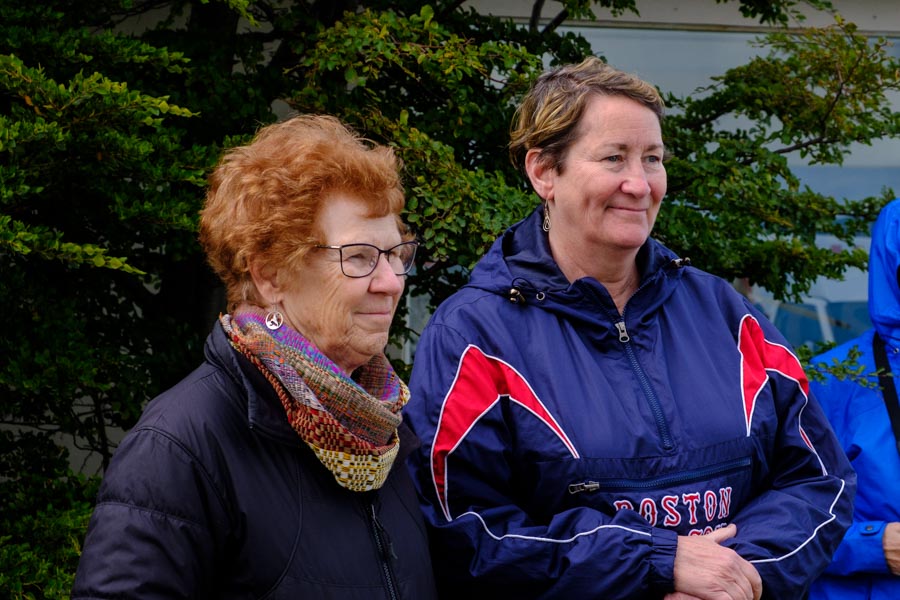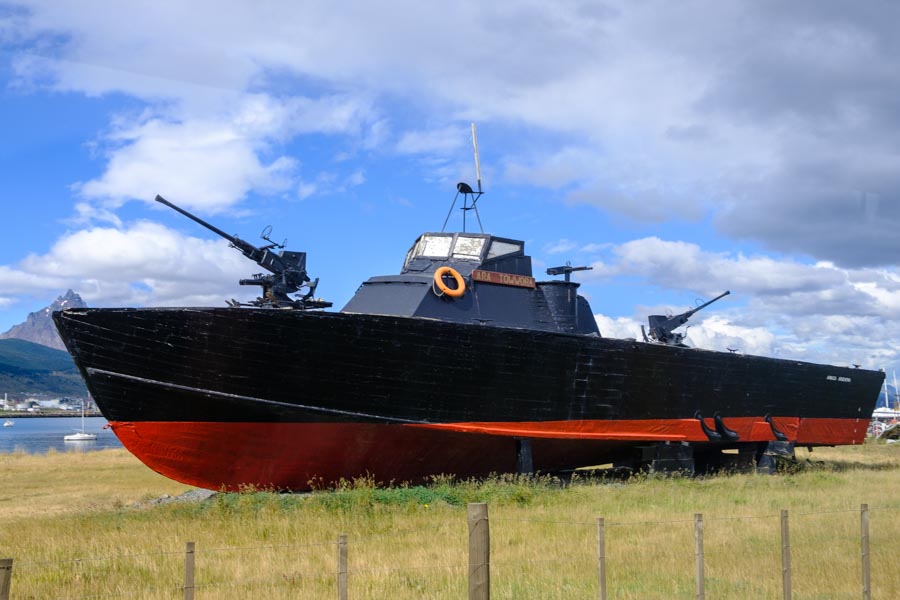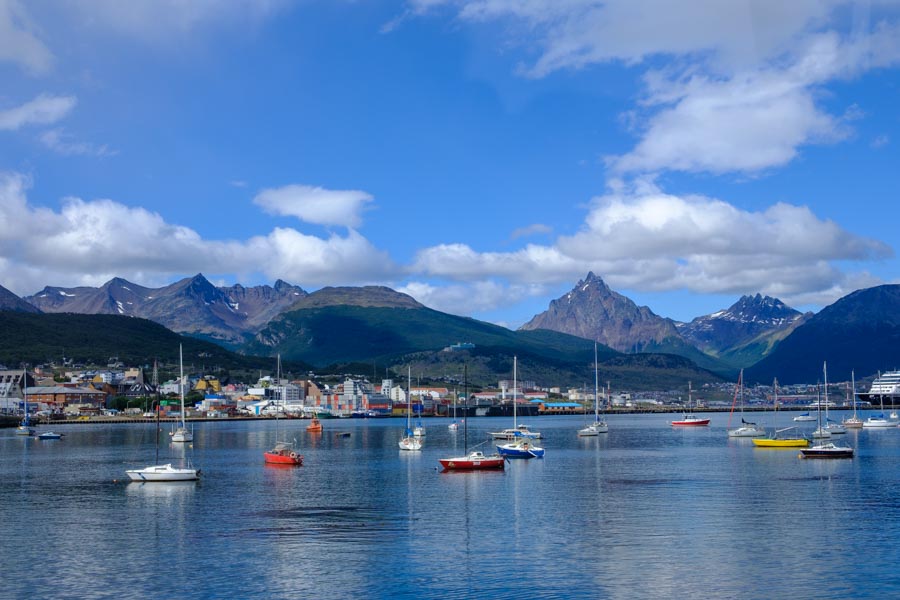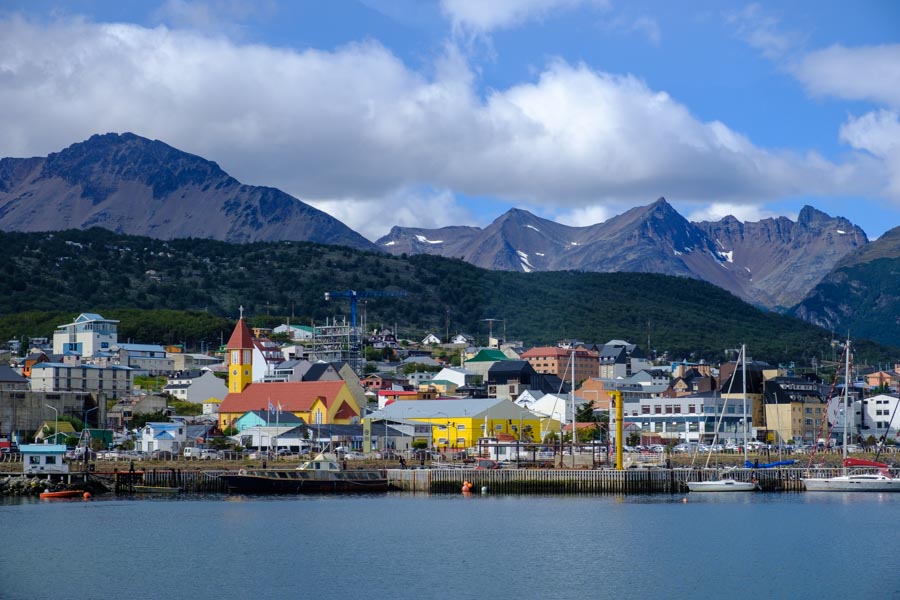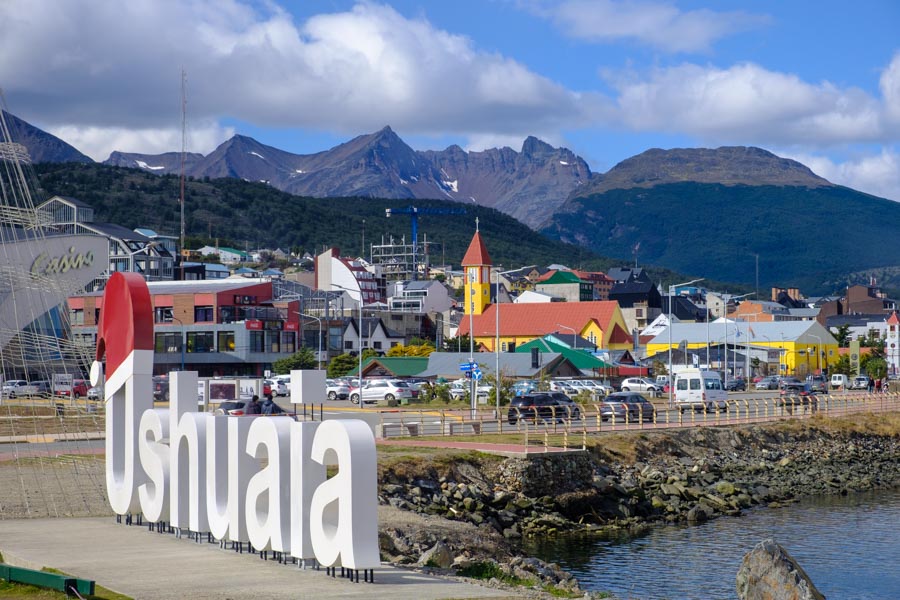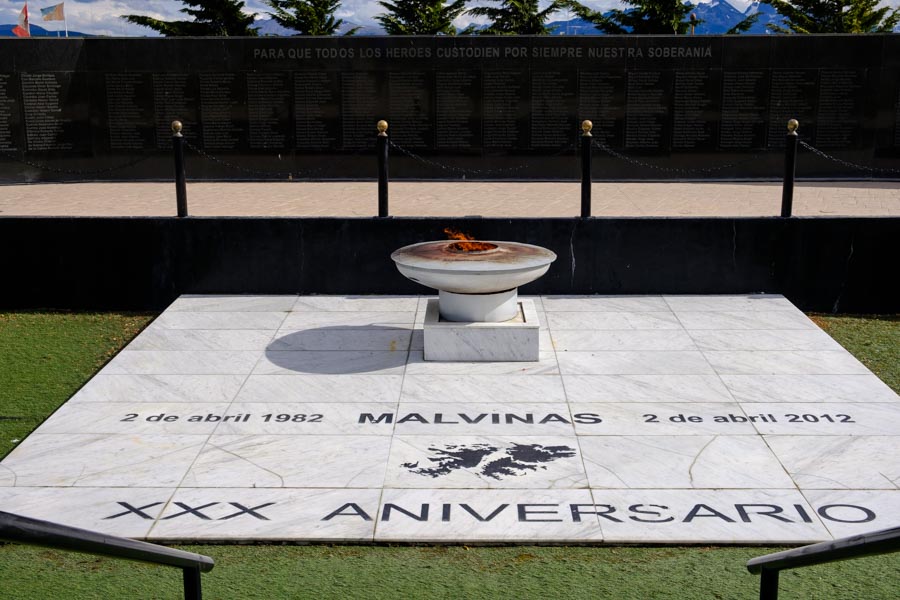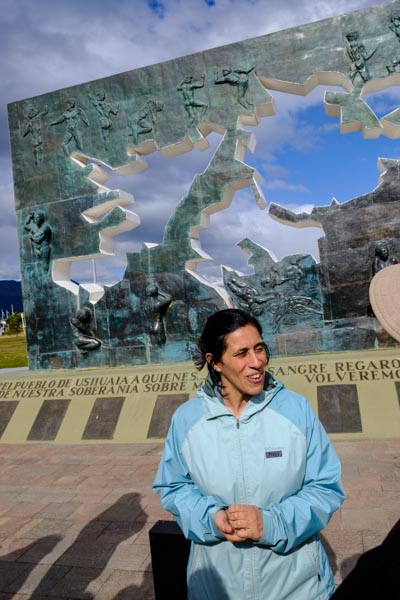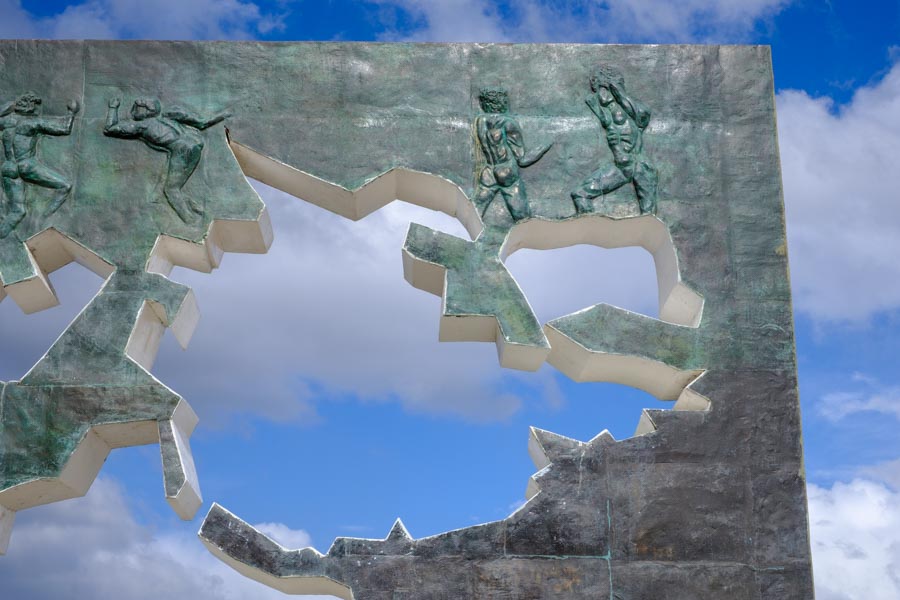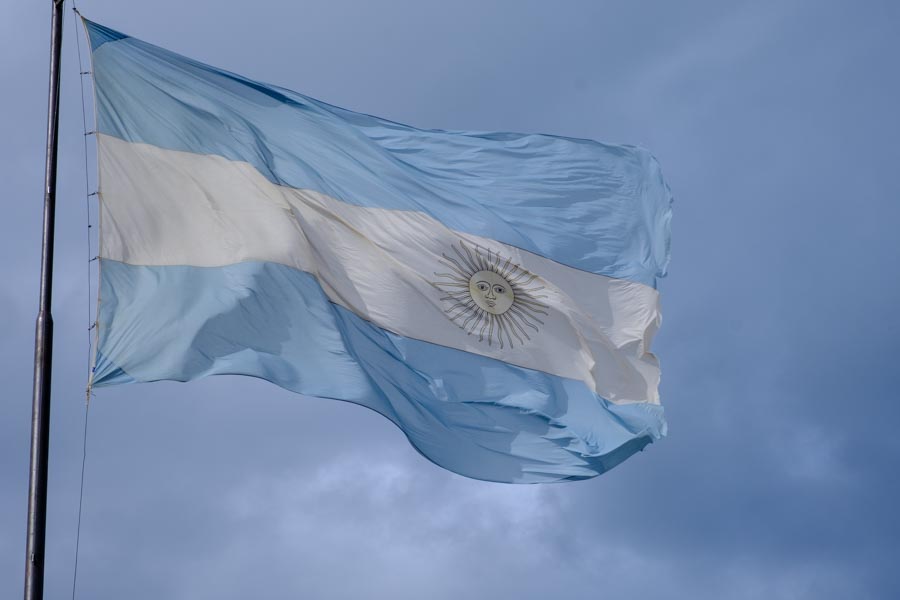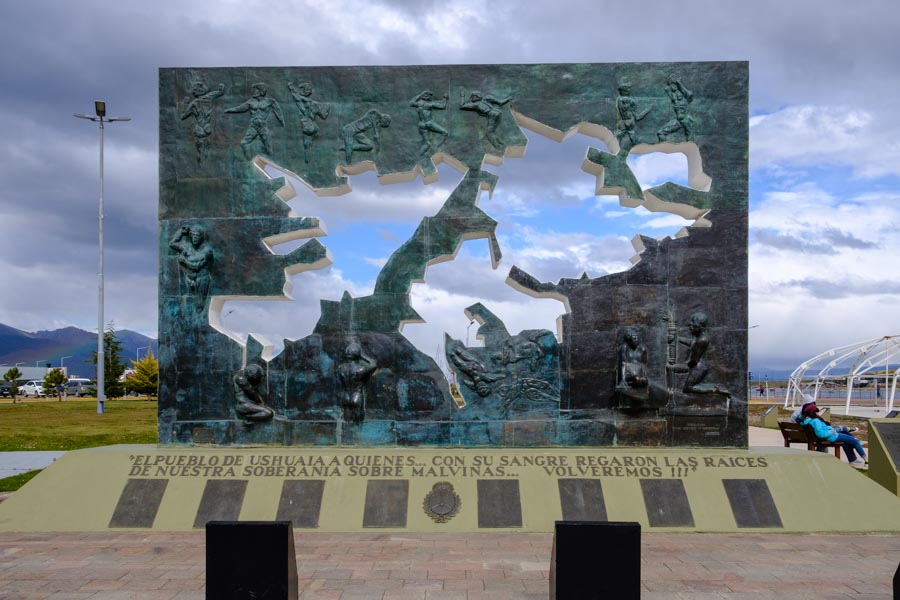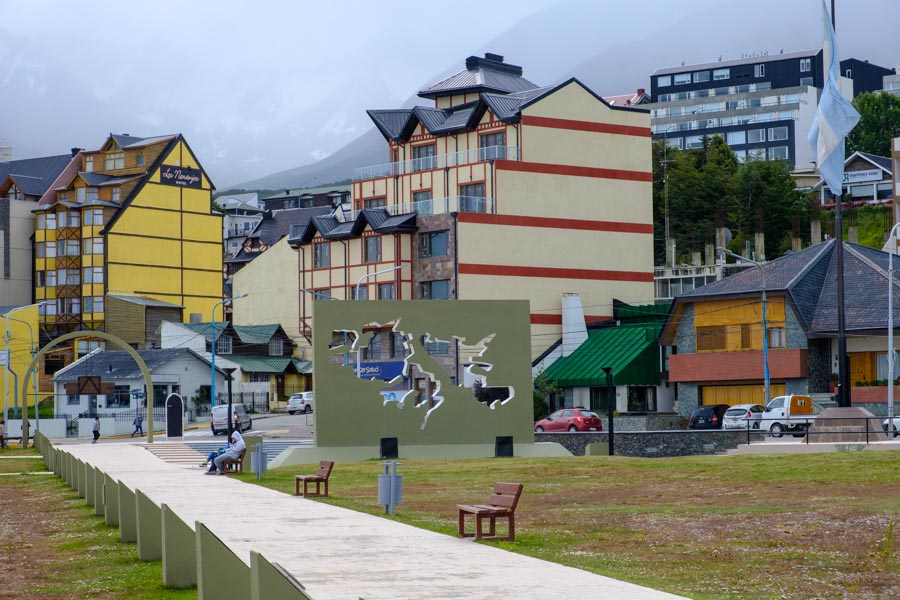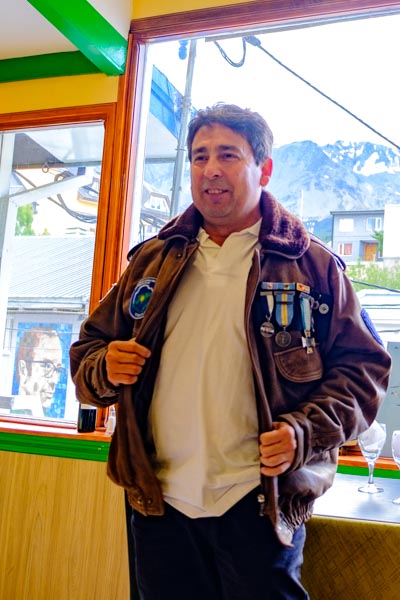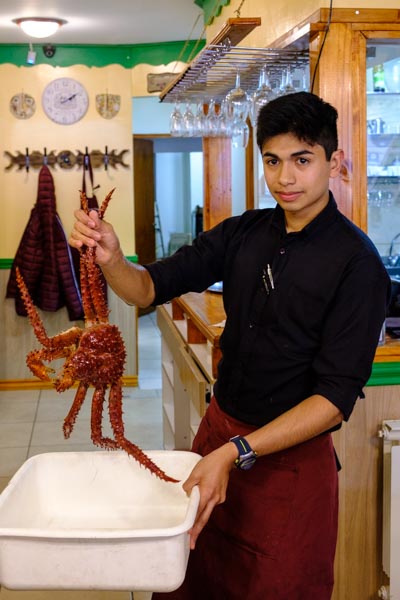The trip south was uneventful. On time, smooth flying, great views of Tierra del Fuego on our way in. We arrived at our hotel and were checked in by 2:00 PM.
The schedule called for free time until 4:00 so Judy and Sharon went up the street to find something to eat. Ushuaia (pronounced Ush-way-ya, I think) is like a lot of tourist towns: a main street with lots of restaurants and shops along a ten-block stretch. The townspeople live off the main drag. In some respects Ushuaia reminds me of an Alaskan town such as Skagway or Juneau; nice, but a little bit rough around the edges. Houses and infrastructure emphasize survival and practicality more than esthetics. It’s the town furthest south of any in the world, it’s cold and windy in the summer and really cold and windy during the winter so it takes a special kind of person to live here. It’s not a small town: population is 80,000 and seems to be growing, judging by the new apartment building construction we’ve seen (it’s apparently government housing).
While the ladies chowed down I stuffed a couple of bars and a bottle of water in my pocket and hiked maybe a mile up the shoreline – actually the shore of the Beagle Channel. It’s named after the ship sailed by Captain Fitzroy with Charles Darwin as a passenger. Snow-covered mountains in virtually every direction ring the town but other than that the views weren’t awe-inspiring. The biggest feature was a tank farm for petroleum products of some sort (a main industry of Tierra del Fuego these days). I found a modern looking shopping mall and turned around, took some seagull pictures just to get practiced up for the wildlife that will hopefully be the subject during the rest of this trip and returned to the hotel.
Tierra del Fuego is an island; the eastern portion belongs to Argentina and the west to Chile. The Magellan Passage defines the north side of the island and the Beagle Channel the south side. I was surprised to find flying in that the island is quite mountainous.
At 4:00 PM a local guide gave us a city tour by bus. We stopped three times at points of interest. It was a beautiful sunny day with temps in the 60s but with strong constant winds blowing from the north (if I’m not too terribly turned around).
Today’s political subject turned out to be the Malvinas War with Britain in 1982. Argentina invaded, believing that it had historical claim to the Malvinas (aka the Falkland Islands in Britain but never here), but the Brits reinforced, sunk a WWII-era ship, brought in an aircraft carrier and that was that.
In one way the war was tragic with 255 British killed and 649 Argentinians. But in an odd sort of way there were positive outcomes on both sides. The leaders behind the Argentinian dictatorship initiated the war. They hoped that the war would unite the Argentine people behind the dictatorship, which was faltering economically and taking international condemnation for the 30,000 citizens who “disappeared”. Because the war was an abject failure the military leaders were forced to hold elections. The dictatorship was ended. Margaret Thatcher, on the other side, was becoming more and more unpopular in Britain. Her country did rally after the Malvinas victory; she was reelected. Even President Reagan benefited. He was able to stand beside his staunch ally Maggie and gain in popularity.
In addition to the lives lost in the war those fighting on the Argentinian side were 18 and 19-year-old conscripts, poorly trained and poorly equipped, suffered greatly. After the war they were deserted by the military, left with no support nor benefits to help them recover. Today many live in Ushuaia and some worked to create a memorial to those who fought and died in the war, which we visited. A veteran of the war spoke to us this afternoon. The details of the conflict went over our heads but he clearly demonstrated pride in the sacrifice he and his compatriots made and is steadfast in his belief that the Malvinas Islands belong to Argentina.
Our guide was a 40-something woman, half Argentinian, half Portuguese, married to an American who delivers sailing yachts around the world and who has an eleven-year-old daughter. She loves Tierra del Fuego, says she misses the constant wind when she’s elsewhere but will move in the coming year to the U.S. so they can establish U.S. citizenship for her daughter.
Tonight was our “welcome” dinner featuring local king crab. Delicious! Tomorrow we tour the area by bus, have a home-hosted luncheon and then board the Ventus Australis. We sail in the evening out the Beagle Channel and will wake up in the vicinity of Cape Horn. Weather permitting we’ll go ashore in zodiac boats.
This will be my last posting for at least four days since there is no Internet aboard our ship. After that we’ll see. Internet service is not guaranteed.
Hasta la vista, bebe!
